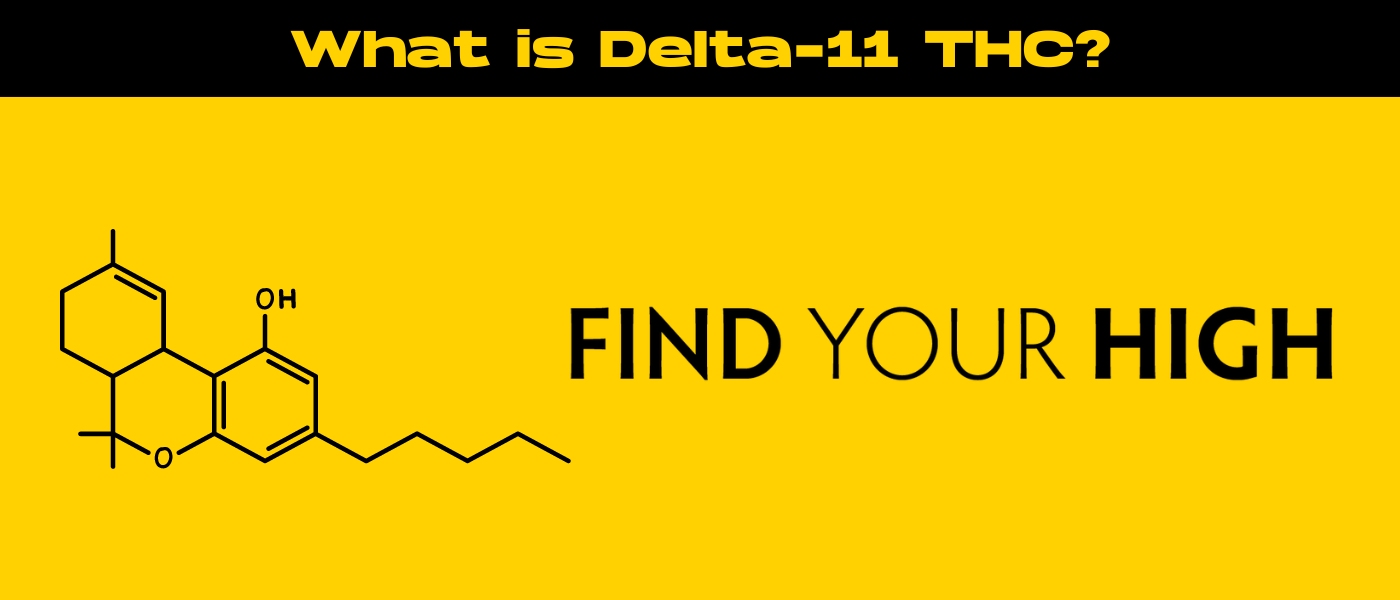When it comes to the world of weed, cannabinoids like THC and CBD usually steal the show. But did you know there are several other cannabinoids, each with its own unique properties and benefits? One such emerging player is Delta 11 THC — but what is Delta 11 THC? This cannabinoid is a lesser-known variant that’s sparking curiosity among consumers and researchers alike.
In this blog, we’ll take a deep dive into Delta 11, unpacking its science, potential benefits, risks, and what sets it apart from its THC cousins.
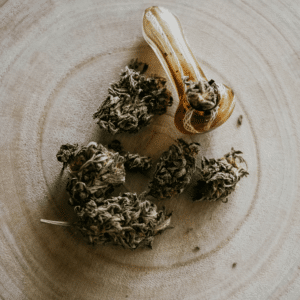
What Are Cannabinoids?
Cannabinoids are naturally occurring compounds found in the cannabis plant. These chemical compounds interact with the body’s endocannabinoid system (ECS), a complex cell-signaling system that plays a key role in regulating functions like mood, appetite, sleep, and immune response.
The most well-known cannabinoids are THC (delta-9-tetrahydrocannabinol) and CBD (cannabidiol). While THC is famous for its psychoactive effects, CBD has gained recognition for its therapeutic potential without causing a “high.” Delta 11 THC, although less common, belongs to this family and interacts with the ECS in intriguing ways. Understanding the broader family of cannabinoids is key to grasping why Delta 11 is worth exploring.
The ECS, discovered in the early 1990s, is integral to maintaining homeostasis within the body. Cannabinoids like Delta 11 interact with receptors within this system, known as CB1 and CB2. Based on a synthesis and pharmacological evaluation, these receptors are dispersed throughout the brain and body, underscoring why cannabinoids can influence a variety of physiological processes.
To appreciate the diversity of cannabinoids, it helps to recognize their natural roles in the cannabis plant. These compounds, whether major or minor cannabinoids, serve as the plant’s defense mechanism against pests, UV light, and environmental stressors. For humans, however, they offer a treasure trove of potential therapeutic and recreational applications.
What is Delta 11 THC?
Delta 11 THC is a naturally occurring cannabinoid that is structurally similar to Delta 9 THC, the primary psychoactive compound in cannabis. The key difference lies in the position of a double bond within the molecule—a subtle change that alters its interaction with the ECS.
Though less studied than its more popular counterparts, Delta 11 is reported to produce psychoactive effects that are slightly different from those of Delta 9 and Delta 8. Early anecdotal evidence suggests that Delta 11’s high may feel more relaxing and euphoric, but more research is needed to confirm these effects.
Delta 11 THC stands out not just for its molecular differences but also for its potential to bridge the gap between the effects of Delta 8 and Delta 9. This makes it an intriguing option for consumers seeking nuanced experiences. Its discovery adds another layer to the evolving understanding of blood cannabinoids and their diverse effects on the human body.
In recent years, cannabinoids like Delta 11 have gained traction due to the increasing popularity of cannabis derivatives. As public interest grows, the spotlight shifts to compounds that might have flown under the radar before. Delta 11 is a perfect example of this trend.
The Science Behind Delta 11
To understand Delta 11, let’s dig into how it works in the body. Like other THC variants, Delta 11 interacts primarily with CB1 receptors in the brain and CB2 receptors found in the immune system. These interactions influence mood, perception, and physiological responses.
Delta 11 is metabolized differently from Delta 9 and Delta 8, potentially resulting in distinct effects. Its bioavailability—the amount that actually reaches the bloodstream—can vary depending on the consumption method, which may also influence its onset and duration of effects.
When consumed via edibles, for instance, Delta 11 undergoes first-pass drug metabolism in the liver, converting into 11-hydroxy-THC, a metabolite known for its potency. This pathway could contribute to its unique effects compared to Delta 9.
Further studies are essential to uncover the specific pathways and mechanisms that define Delta 11’s interaction with the ECS. Preliminary findings suggest that its psychoactive profile might offer a balance between the intensity of Delta 9 and the mildness of Delta 8, making it an appealing option for both recreational and medicinal users.
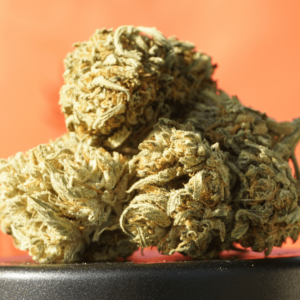
Comparing Delta 11 to Other THC Variants
How does Delta 11 stack up against other THC types like Delta 8, Delta 9, and Delta 10? Let’s break it down:
- Delta 8 THC: Known for milder psychoactive effects, often described as calming and less intense than Delta 9.
- Delta 9 THC: The most potent and widely recognized THC variant, offering a classic cannabis high.
- Delta 10 THC: Popular for its uplifting and energizing effects.
- Delta 11 THC: Anecdotally described as more euphoric and relaxing, potentially making it a middle ground between Delta 8 and Delta 9.
While all these cannabinoids share a similar molecular framework, their effects vary due to differences in how they interact with the ECS.
Understanding these nuances can help users make more informed choices. For example, individuals looking for a smoother high might lean toward Delta 8, while those seeking a more intense experience might prefer Delta 9. Delta 11 provides a unique alternative for those wanting something distinct yet balanced.
Another factor to consider is accessibility. Delta 8 and Delta 9 are more widely available, but the novelty of Delta 11 is drawing attention from adventurous consumers eager to try something new. This curiosity is fueling a small but growing market for Delta 11 products.
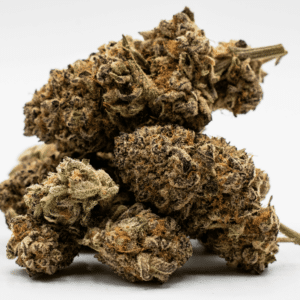
Potential Benefits of Delta 11
Delta 11 THC’s unique properties might offer several benefits. Although research is still in its infancy, anecdotal reports and preliminary studies suggest it could help with:
- Relaxation: Many users describe the high as calming and soothing.
- Stress Reduction: Delta 11 may provide relief from stress and anxiety without the intensity associated with Delta 9.
- Pain Management: Like other THC variants, Delta 11 may have analgesic properties that help alleviate discomfort.
- Improved Sleep: Its relaxing effects could make it a valuable option for those struggling with insomnia.
Beyond these anecdotal benefits, scientists are exploring whether Delta 11’s distinct interaction with the ECS could provide advantages in treating conditions such as chronic pain, inflammation, and mood disorders. The potential for Delta 11 to complement other cannabinoids in therapeutic formulations adds to its allure.
It’s worth noting that these potential benefits are based largely on user experiences and limited research. Always approach new cannabinoids with caution and consult with a healthcare provider if you have underlying conditions.
Delta 11 could also hold promise for “entourage effect” applications, where multiple cannabinoids work synergistically to enhance therapeutic outcomes. This concept is especially relevant in the development of full-spectrum cannabis products.
Risks and Side Effects
Like any cannabinoid, Delta 11 comes with potential risks and side effects. Here’s what to keep in mind:
- Overconsumption: Taking too much can lead to unwanted effects such as paranoia, dizziness, or increased anxiety.
- Tolerance: Frequent use may lead to diminished effects over time, requiring higher doses to achieve the same results.
- Short-Term Side Effects: Dry mouth, red eyes, and drowsiness are commonly reported by users.
Delta 11’s potential for psychoactivity means it’s essential to use responsibly. For novice users, starting with a low dose is crucial to avoid overwhelming effects. Additionally, the lack of extensive research on Delta 11’s long-term impact underscores the importance of moderation and mindfulness when using it.
To minimize risks, start with a low dose and gradually increase until you find your optimal level. Always ensure you’re using products from reputable sources to avoid contaminants.
Another risk factor is the lack of regulation in the cannabis industry. Low-quality Delta 11 products may contain harmful additives or inaccurate potency levels. Prioritize brands with transparent practices and rigorous testing.
Legal Status of Delta 11
The legality of Delta 11 is a bit of a gray area. Under the 2018 Farm Bill, hemp-derived cannabinoids with less than 0.3% hemp-derived THC are federally legal in the United States. However, state laws vary from federal law, and some states have explicitly banned synthetic or semi-synthetic THC variants, which could include Delta 11.
If you’re considering Delta 11, it’s essential to check your local laws and regulations to ensure compliance. The evolving regulatory landscape surrounding cannabinoids adds complexity, with federal and state-level interpretations often diverging. For consumers, staying informed and sourcing products responsibly is critical.
The legal ambiguity also affects retailers and manufacturers, who must navigate a patchwork of rules. Advocacy efforts may eventually clarify Delta 11’s status, but for now, caution is warranted.
How Delta 11 is Made
Delta 11 can be extracted from the cannabis plant or synthesized in a lab. Here’s a quick overview of the process:
- Extraction: Delta 11 is isolated from cannabis or hemp plants using advanced extraction techniques to form cannabis concentrates.
- Conversion: Some producers may use chemical processes to convert CBD or other cannabinoids into Delta 11.
- Purification: The final product undergoes purification to remove impurities and ensure quality.
Due to the complexity of production, Delta 11 is less common than Delta 8 or Delta 9, making it a niche product in the cannabis market. As demand grows, innovations in extraction and synthesis methods may make Delta 11 more accessible to a broader audience.
The environmental impact of production is another consideration. Sustainable practices in cannabinoid extraction can minimize the carbon footprint and promote eco-friendly growth within the industry.
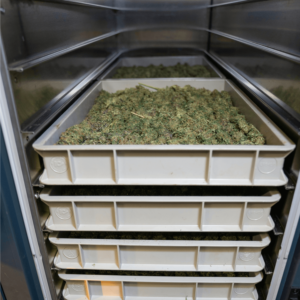
Products Containing Delta 11
As Delta 11 gains traction, it’s appearing in a variety of products. Popular options include:
- Edibles: Gummies and chocolates infused with Delta 11 offer a discreet and tasty way to consume it.
- Tinctures: These liquid extracts allow for precise dosing and are often taken sublingually.
- Vape Cartridges: For those seeking quick effects, vaping Delta 11 is a popular choice.
When purchasing Delta 11 products, look for third-party lab tests to verify potency and purity. High-quality products will clearly display this information. Transparency in labeling and rigorous testing standards are key to ensuring consumer safety and satisfaction.
Emerging trends suggest Delta 11 products could soon diversify, including topical applications and beverage infusions. These innovations could broaden the appeal of Delta 11 to new consumer segments.
The Future of Delta 11
Delta 11 THC is still in its early days, but it shows promise as an exciting addition to the cannabis landscape. As research progresses, we may uncover more about its benefits, risks, and unique properties. The growing interest from consumers and manufacturers suggests that Delta 11 could play a significant role in the industry’s evolution.
Expect to see more innovative products featuring Delta 11 as companies refine extraction techniques and develop new applications. However, regulatory challenges and the need for more scientific studies remain hurdles that must be addressed. Collaborations between researchers, policymakers, and industry stakeholders will be crucial for paving the way forward.
Expanding the Understanding of Cannabinoids
As Delta 11’s profile rises, the broader conversation around cannabinoids continues to grow. Understanding how these compounds interact with our bodies will only enhance our ability to harness their benefits responsibly.
If you’re intrigued by the science and potential of Delta 11, stay informed and consider joining discussions within the cannabis community to share insights and experiences.
Conclusion
Delta 11 THC is an intriguing cannabinoid that’s gaining attention for its unique effects and potential benefits. While still relatively obscure compared to Delta 9 and Delta 8, it’s poised to make waves as cannabis consumers seek new and diverse experiences.
If you’re curious about Delta 11, take the time to research thoroughly, choose high-quality products, and start with a low dose. With the cannabis industry evolving rapidly, Delta 11 could be the next big thing—and now you’re ahead of the curve!
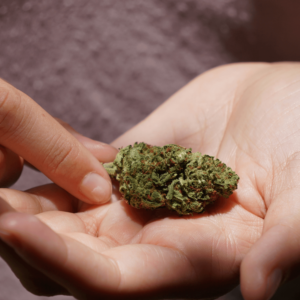
Frequently Asked Questions
1. What kind of high is Delta 11?
Delta 11 THC is often described as producing a euphoric and relaxing high. Users report that it strikes a balance between the intensity of Delta 9 THC and the mellowness of Delta 8 THC. The experience may feel more calming than Delta 9, making it a suitable choice for those seeking relaxation without overwhelming psychoactive effects.
2. Is delta 8 or Delta 11 stronger?
Delta 11 is generally considered stronger than Delta 8 THC. While Delta 8 offers a mild and relaxing high, Delta 11 is more potent and provides a more pronounced euphoric effect. The difference lies in how each cannabinoid interacts with the endocannabinoid system, with Delta 11 producing effects that are closer to Delta 9 in intensity.
3. Which is stronger, Delta 9 or Delta 11?
Delta 9 THC is still considered the most potent of the commonly known cannabinoids. However, Delta 11 offers a unique experience that some users describe as more balanced and less anxiety-inducing compared to Delta 9. The strength of Delta 11’s high can depend on the method of consumption and individual tolerance, but it generally falls just below Delta 9 in terms of potency.
4. Is Delta 11 more potent than Delta 10?
Yes, Delta 11 is more potent than Delta 10 THC. Delta 10 is known for its energizing and uplifting effects, often compared to a mild sativa-like high. In contrast, Delta 11 offers a deeper, more relaxing high with stronger psychoactive effects, making it a better choice for those looking for a more substantial experience.
5. Does Delta 11 THC compounds show up in drug tests?
Yes, Delta 11 THC can show up in drug tests. Most standard drug tests are designed to detect THC metabolites, which are produced when THC is broken down in the body. Since Delta 11 has the same chemical formula as Delta 9 THC, it is likely to trigger a positive result. If you are subject to drug testing, it is advisable to avoid Delta 11 products to prevent any potential issues.
6. How does THCa Flower compare to Delta 11 THC?
THCa Flower and Delta 11 THC differ significantly in terms of their chemical structure and effects. THCa Flower contains tetrahydrocannabinolic acid (THCa), which is non-psychoactive until heated, making it ideal for therapeutic use without intoxicating effects. On the other hand, Delta 11 THC is known for its psychoactive properties, often described as more potent than Delta 9 THC. If you’re seeking a non-intoxicating option, THCa Flower is a better choice, whereas Delta 11 is suitable for those looking for a stronger, euphoric experience.




